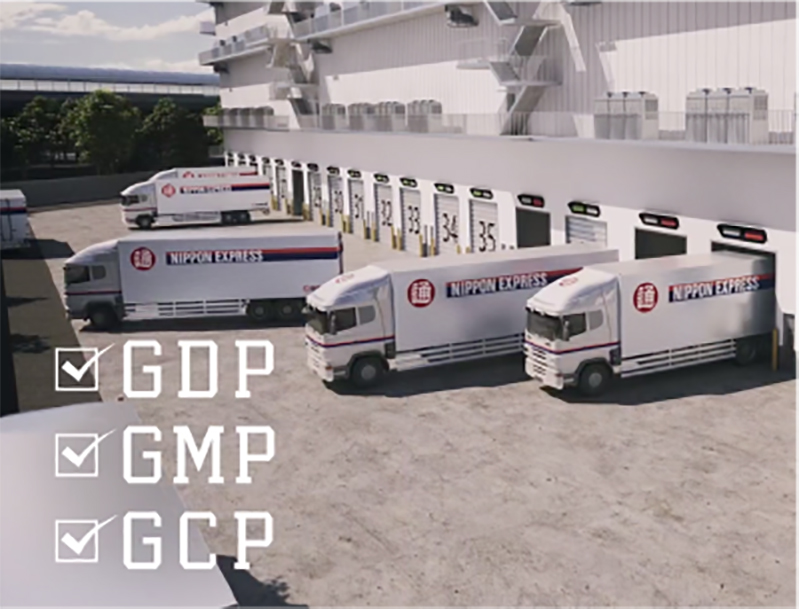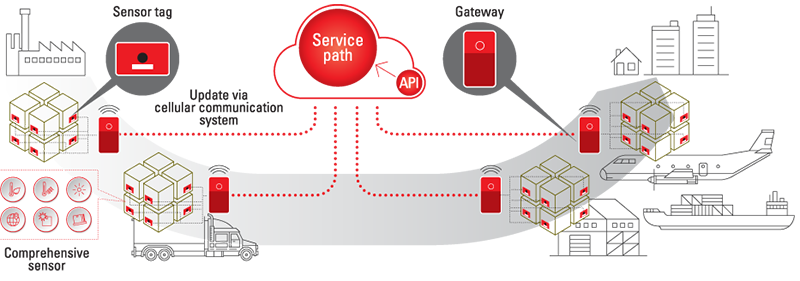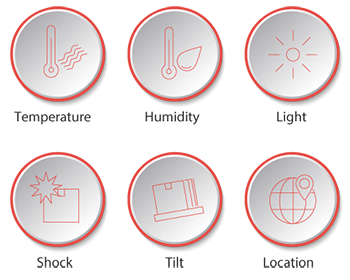From factory to patient, Nippon Express finds the way
July 8, 2020
- ― Keeping lifelines open
-
The coronavirus crisis has closed borders, emptied streets and stilled the planet for months. But behind the scenes, logistics companies and their employees have been working flat out to keep lifelines open and the world connected. By land, sea, and air, transporters have overcome unprecedented disruptions to deliver vital supplies where needed.

- Nippon Express, Asia’s largest and among the largest global transporters in the world, is one such company. True to its slogan, the Japanese company has been “finding the way” to maintain critical logistics networks.
- When the crisis first erupted, supply chains in China and the region were thrown into chaos. Nippon Express was among the first to bring in emergency supplies, including medical supplies, from overseas into Wuhan. The company also quickly drew up alternative logistics routes to maintain shipments between Japan, China, and Europe, leveraging its unique strength in intermodal transport.
- Besides these immediate challenges, the ongoing crisis has focused the world’s attention on healthcare logistics.
- As factories ramp up production of medical equipment like masks and ventilators, effective delivery of these supplies to match fluctuating global demand will be critical. Even after discovering effective pharmaceuticals and vaccines against the virus, these temperature-sensitive pharmaceuticals will have to be tracked and delivered to patients uncompromised. Data of how healthcare supplies are crisscrossing the world needs to be collected and analysed. Sharing such real-time data could help anticipate demand and shorten speed to therapy.
- ― Setting the stage for pharma
-
Such an ideal future has not yet arrived. But Nippon Express has been working on a digital platform for more efficient distribution of pharmaceuticals.

- “As an industry leader, Nippon Express believes it has the duty to create a digital platform which contributes to the pharmaceutical industry in a period of increasingly stringent quality controls in distribution,” says Haruyasu Toda, Executive Officer and General Manager of the Digital Platform Strategy Division.
- “To build this platform, we are investing up to ¥100bn to construct a physical logistics network, dedicated warehouse and vehicles specialised in pharmaceuticals, while developing an IoT- and blockchain-based information system to enable end-to-end traceability.”
- The impetus for the project follows the Japanese government’s request to the domestic pharma industry to follow guidelines on Good Distribution Practices (GDP) in 2018.
-
These GDP standards, already legally mandated in the EU, require pharmaceutical distributors to guarantee the quality and integrity of pharmaceuticals and their active ingredients throughout the supply chain from factory to patient.

- Complying with GDP will combat the deplorable practices of counterfeit pharmaceuticals and theft. Equally important, such quality standards are indispensable to ensure the integrity of certain pharmaceuticals, such as biological drugs and vaccines which are highly sensitive to temperature changes.
- But achieving GDP-compliance is expensive and complex.
- “If individual pharmaceutical companies had to invest in facilities on their own to comply with GDP, the costs would be unbearable and prevent these companies from investing where they should,” explains Toda.
- In light of these challenges, Nippon Express realised it had the unique capabilities to offer an industry-wide solution, says Toda.
- First, the company stands outside of the pharma industry, allowing it to become a neutral and trusted platform provider. Moreover, as a global forwarder with logistics infrastructure and networks spanning 48 countries and 73,000 global employees, Nippon Express is among the few companies able to offer comprehensive end-to-end service to the industry throughout the world.
- Set to launch next year for the Japanese pharma market, Nippon Express hopes to eventually extend the platform to serve Indian, European and North American markets. Ultimately, the goal is to offer similar services across a wide range of industries with high-value-added shipments.
- “We are initially starting with pharma, where we believe the need and opportunity to generate efficiencies from a digital platform are greatest. Besides, we hope to create similar platforms for other industries such as semiconductor and high fashion in the future,” explains Toda.
- ― Commitment to digital transformation
-
In recent years, shippers, truckers, warehouses, and forwarders have been scrambling to adopt IT, IoT, and blockchain technologies into their operations. All speak of digitalisation as the route to maximise efficiency, traceability and transparency.

- As Japan’s top logistics company, Nippon Express’ commitment to cutting-edge technologies has been no less than its rivals.
- Externally hiring Toda two years ago from the Japanese technology leader NEC as an IT chief is one sign of the forwarder’s seriousness to digital transformation.
- “Joining this company, I soon realised the possibility of significantly improving social infrastructure by fusing digital technologies with the capabilities of Nippon Express logistics,” says Toda. “We continue investing in IT to be able to provide greater value to our customers.”
- To build the pharma digital platform, Nippon Express announced a business partnership earlier this year with Accenture to build a blockchain system.
- “We believe we can revolutionise the logistics industry by collaborating our mutual strengths,” says Hiroki Kitagawa, Managing Director of Products at Accenture. “We bring know-how of pharma markets, supply-chain management, and blockchain platforms, while Nippon Express brings its global logistics assets and quality-management in operations.”
- Nippon Express has also been working with Intel for its Global Cargo Watcher Advance (GCWA) system, a cloud-based tracking system. At the heart of GCWA is a playing-card-pack-sized electronic tag, developed by Intel initially for semiconductor equipment shipments, which can log temperature, humidity, light, shock and tilt.
- When cargo affixed with these tags passes through reader gateways, their master units upload the data with GPS-based location information to a cloud and store it in the blockchain ledger. Customers will then be able to “watch” in real-time where and in what condition their cargo is, enabling owners to deal in timely fashion with incidents – such as temperature excursions – without waiting for arrival.
- The company is currently setting up reader gateways in critical international nodes – such as ports, airports and warehouses – as well as in specialised vehicles throughout its global network.
- Last year, Nippon Express conducted two pilot tests of GCWA by delivering temperature-sensitive produce from a domestic farm to its head office in Tokyo and to Haneda Airport. Both tests succeeded in tracking and capturing temperature data throughout the journey.
- ― Anticipatory logistics for the future
-
Tracking this real-time data during shipment on blockchain reduces risks of counterfeits, theft and falsifying tracking data. Equally important, blockchain can reduce time-consuming paperwork such as invoices and bills of lading.

- Toda, however, emphasises another critical benefit from a blockchain-based platform beyond reducing fraud and delay: generating big data which could optimise supply chains.
- “Analysing the big data from a digital platform may help participants improve their processes dramatically,” says Toda. “With pharma, for example, participants could gain an industry-wide real-time view of how much and what kind of pharmaceuticals are flowing in the market. From there we may be able to anticipate, for example, where vaccines will be in shortage or in oversupply. Orders can then be made based on real-time data as opposed to projections based on just past data, thereby reducing overall losses.”
- To realise these benefits, the platform must be an open system that can be used equally by all stakeholders. Designing such a platform involving so many players from different industries is a challenge, says Toda, but Nippon Express is particularly committed to building one.
- But with such a cooperative infrastructure in place, the world will be in a much better place to fight future health crises. Pharma shipments would be secure, safely tracked, and speeding through borders on a blockchain ledger. Critical shipments may even, amazingly, take place before orders are made, be rerouted in real-time with help of big data, and find their destinations on the way.
- ― Watching the cargo in the cloud
-
 The Global Cargo Watcher Advance (GCWA) system is a cloud-based tracking system. When cargo affixed with electronic sensor tags passes through reader gateways, logged data is uploaded to a cloud and stored in a blockchain ledger. Customers are able to reliably “watch” in real-time, where and in what condition their cargo is, enabling timely responses to incidents.
The Global Cargo Watcher Advance (GCWA) system is a cloud-based tracking system. When cargo affixed with electronic sensor tags passes through reader gateways, logged data is uploaded to a cloud and stored in a blockchain ledger. Customers are able to reliably “watch” in real-time, where and in what condition their cargo is, enabling timely responses to incidents.
-
 The electronic tag used in the GCWA system is compact (around the size of a pack of playing cards) and versatile (able to log temperature, humidity, light, shock, and tilt). Both features make it ideal to be placed inside compact containers and track condition-sensitive medicines.
The electronic tag used in the GCWA system is compact (around the size of a pack of playing cards) and versatile (able to log temperature, humidity, light, shock, and tilt). Both features make it ideal to be placed inside compact containers and track condition-sensitive medicines.